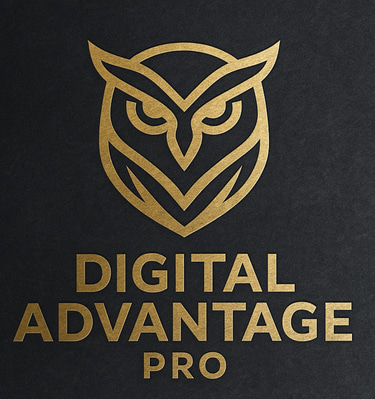Mastering AI Literacy is Essential
Some schools are putting an emphasis on AI literacy through interdisciplinary education, equipping students to critically use AI as a tool, ensuring workforce readiness amid AI-driven industry transformations and job market changes.
EDUCATIONARTIFICIAL INTELLIGENCETECHNOLOGY
Eric Sanders
7/23/20253 min read


AI Literacy: A Crucial Skill in the Workforce
There feels like a whirlwind of technological advances reshaping our world, one thing has become crystal clear to me: AI literacy is proving to be more than just a trendy add-on anymore and is quickly becoming the number one skill employers are demanding right now. It’s no surprise that Colby College is blazing a trail in this arena, embedding AI education across disciplines to prepare students not only to survive but to thrive in an AI-driven economy. This is a crucial conversation about how education must evolve to match the seismic shifts AI is causing in industry, job markets, and everyday life.
AI Literacy Is Non-Negotiable
AI has surged from a niche technological marvel into a fundamental pillar of virtually every sector, from healthcare and finance to media and manufacturing. Businesses are utilizing AI all the time now. It's transforming their entire operational DNA around it. As some School professors emphasize, being able to critically understand and deploy AI tools is no longer optional. It’s a prerequisite.
So what's the bigger impact on AI education? Well, workers who lack AI literacy will find themselves at a profound disadvantage I think. Employers crave people who can harness AI thoughtfully (not mindlessly) and who grasp both its power and its limits. “AI literacy empowers students with the know-how to use AI tools ethically, efficiently, and creatively,” a Colby expert notes. Students learn to analyze an AI’s output, question its data sources, and refine prompts to achieve meaningful results. This skillset, Colby argues, situates graduates well ahead of the curve in a marketplace redefined by automation and intelligence augmentation.
Learning to Speak AI's Language
To appreciate why AI literacy matters so much, consider this: I once approached AI tools, chatbots, data analysis programs, and image generators with a mix of curiosity and skepticism. Initially, it felt like magic, but also frustrating because I wasn’t sure how to frame questions properly or interpret the answers. It was a bit like trying to talk to a native speaker of a new language with no grammar lessons.
When I started engaging with AI education models, emphasizing critical thinking over rote usage, everything changed. Suddenly, I was no longer passively receiving AI-generated content; I was interacting, steering, and challenging the technology. The mental shift didn’t just make me more efficient but it just heightened my awareness of biases, limitations, and ethical considerations while using.
Personally, my experiences echoes what Colby’s interdisciplinary approach champions: AI literacy is no longer about technical know-how. It's now more about cultivating a mindset where AI is a partner in problem-solving and not just a tool that we hope and pray will fix our problems. The human-first approach to AI literacy really does prepare students for workforce demands and an ever-more complex digital culture.
How Interdisciplinary Education Bridges the AI Gap
This adaption of AI being taught in schools ensures workforce readiness by:
- Fostering adaptability in students who are comfortable navigating AI-driven tools no matter their field.
- Encouraging critical thinking to prevent blind reliance on AI outputs.
- Equipping graduates to engage with AI ethically and creatively, making them valuable contributors in diverse industries.
As AI technologies evolve, this flexible, well-rounded literacy will enable workers to pivot and innovate instead of becoming obsolete.
Becoming AI Literate in a Changing World
Here are tangible takeaways to keep in mind:
- Treat AI literacy as a foundational skill, on par with writing or basic digital proficiency.
- Embrace interdisciplinary learning. The ability to understand AI’s impact from multiple lenses, technical, ethical, social, is invaluable.
- Practice critical use of AI tools. Question outputs, be mindful of biases, and use AI to augment, not replace, human creativity and judgment.
- Prepare for ongoing change. AI-driven transformations will continue accelerating; cultivating adaptability is key.
Employers actively seek candidates who demonstrate this nuanced understanding. This is not the time for passive consumption of AI but an era of active, informed interaction.
How Will You Engage with AI?
In a world rapidly transforming through AI innovation, one question lingers for me: How will you position yourself to not just use AI, but to wield it with awareness and purpose?
Whether you're a student, professional, or lifelong learner, the challenge is clear. AI literacy is the gateway to opportunities, influence, and ethical responsibility. The more we integrate AI education into diverse disciplines and embrace its complexities, the better prepared we’ll be to shape the future rather than be shaped by it.
Who will lead this charge, will it be you? Will you take deliberate steps to become an AI-savvy thinker, or will you watch from the sidelines as AI reshapes industries and society? The answer might just define the trajectory of your career and identity in this new technological era.
Efficiency
Transform your workflows and reclaim your time.
Contact Us
Need A Custom Solutions? Lets connect!
eric.sanders@thedigiadvantagepro.com
772-228-1085
© 2025. All rights reserved.
